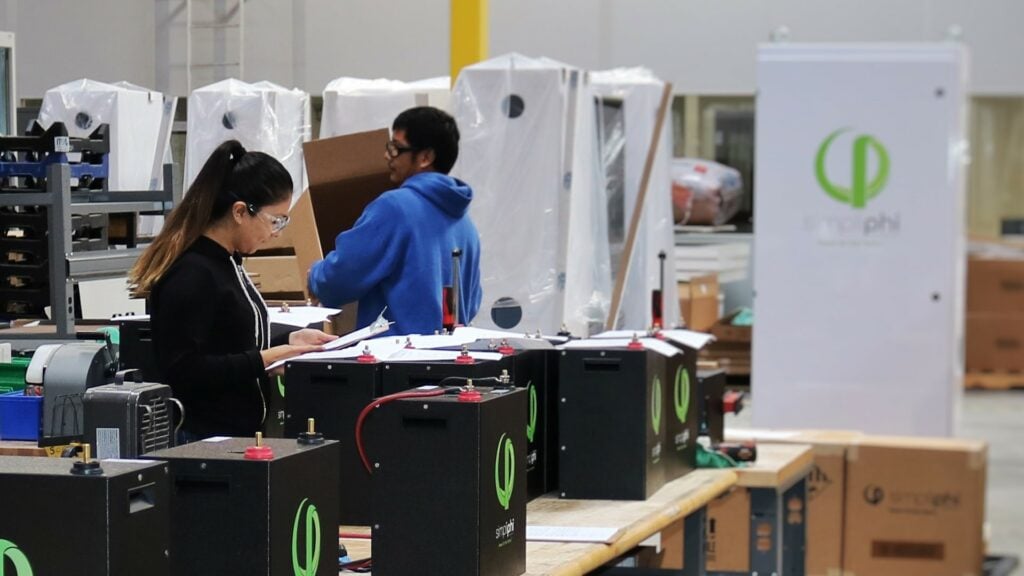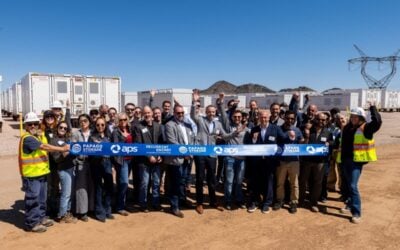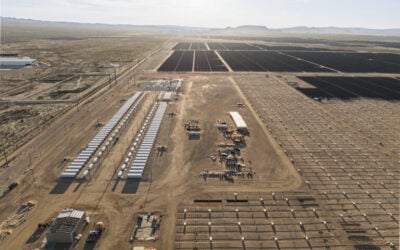
The US Department of Energy (DOE) has provided dates and a partial breakdown of grants totalling US$2.9 billion to boost the production of batteries for the electric vehicle (EV) and energy storage markets, as promised by President Biden’s Bipartisan Infrastructure Deal.
The money will be provided by DOE branch the Office of Energy Efficiency and Renewable Energy (EERE) and will go towards battery materials refining and production plants, battery cell and pack manufacturing and recycling facilities.
Enjoy 12 months of exclusive analysis
- Regular insight and analysis of the industry’s biggest developments
- In-depth interviews with the industry’s leading figures
- Annual digital subscription to the PV Tech Power journal
- Discounts on Solar Media’s portfolio of events, in-person and virtual
EERE has released two notices of intent (NOI) to issue funding opportunity announcements (FOA) on or about April-May 2022, it says. The estimated period of performance for each award will be approximately three to four years, it adds.
The announcement is the culmination of years of the US wanting to have more of a hand in the battery supply chain. Most countries including the US get the vast majority of their EV and battery energy storage system (BESS) batteries from Asia, notably China.
Funding specifics
The first FOA, the ‘Bipartisan Infrastructure Law – Battery Materials Processing and Battery Manufacturing Funding Opportunity Announcement,’ will be the bulk of the money at up to US$2.8 billion. It has set minimum funding amounts for specific areas. The first three are in battery material processing:
– A minimum of US$100 million for new commercial-scale battery material processing facilities in the United States
– A minimum of US$50 million for projects to retool, retrofit, or expand one or more qualifying existing battery material processing facilities located in the United States
– A minimum of US$50 million for demonstration projects in the United States for the processing of battery materials
The second three are in battery component manufacturing and recycling:
– A minimum of US$100 million for new commercial-scale advanced battery component manufacturing, advanced battery manufacturing, or recycling facilities
– A minimum of US$50 million for projects to retool, retrofit, or expand one or more qualifying existing facilities for advanced battery component manufacturing, advanced battery manufacturing, and recycling
– A minimum of US$50 million demonstration projects for advanced battery component manufacturing, advanced battery manufacturing, and recycling
All facilities must be in the US.
The second, smaller FOA, the “Bipartisan Infrastructure Law (BIL) Electric Drive Vehicle Battery Recycling and Second Life Applications”, will make US$40 million available for ‘Recycling Processing and Reintegration into the Battery Supply Chain’ and US$20 million for ‘Second Use Scale-Up Demonstration Projects’.
The US$2.9 billion is one of a few pots of money promised by the bill, including half a billion dollars for energy storage demonstration projects via the US$20 billion Office of Clean Energy Demonstrations and another US$3 billion in grants for grid flexibility.
Energy-storage.news sources were uniformly positive about the announcement back in November, but all highlighted that introducing a tax credit for energy storage investment would be the real game changer for the sector.
The Bipartisan Infrastructure Deal will provide a total of US$62 billion for the country’s push to a cleaner energy sector.






